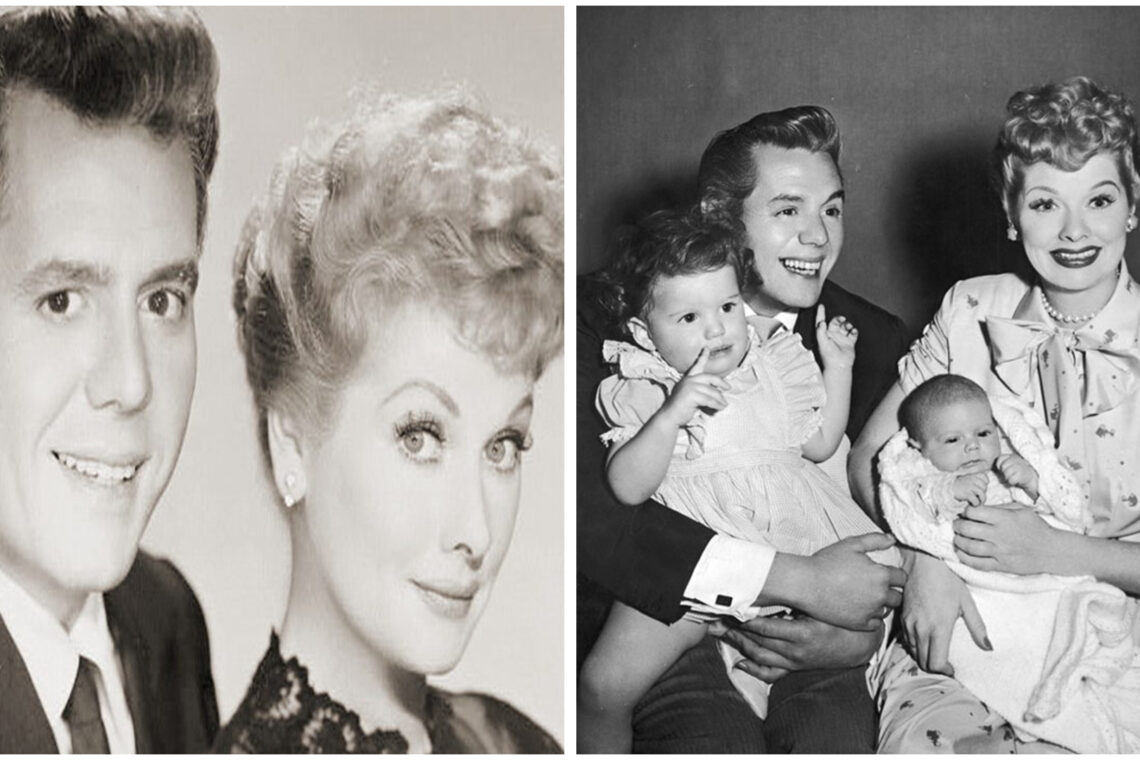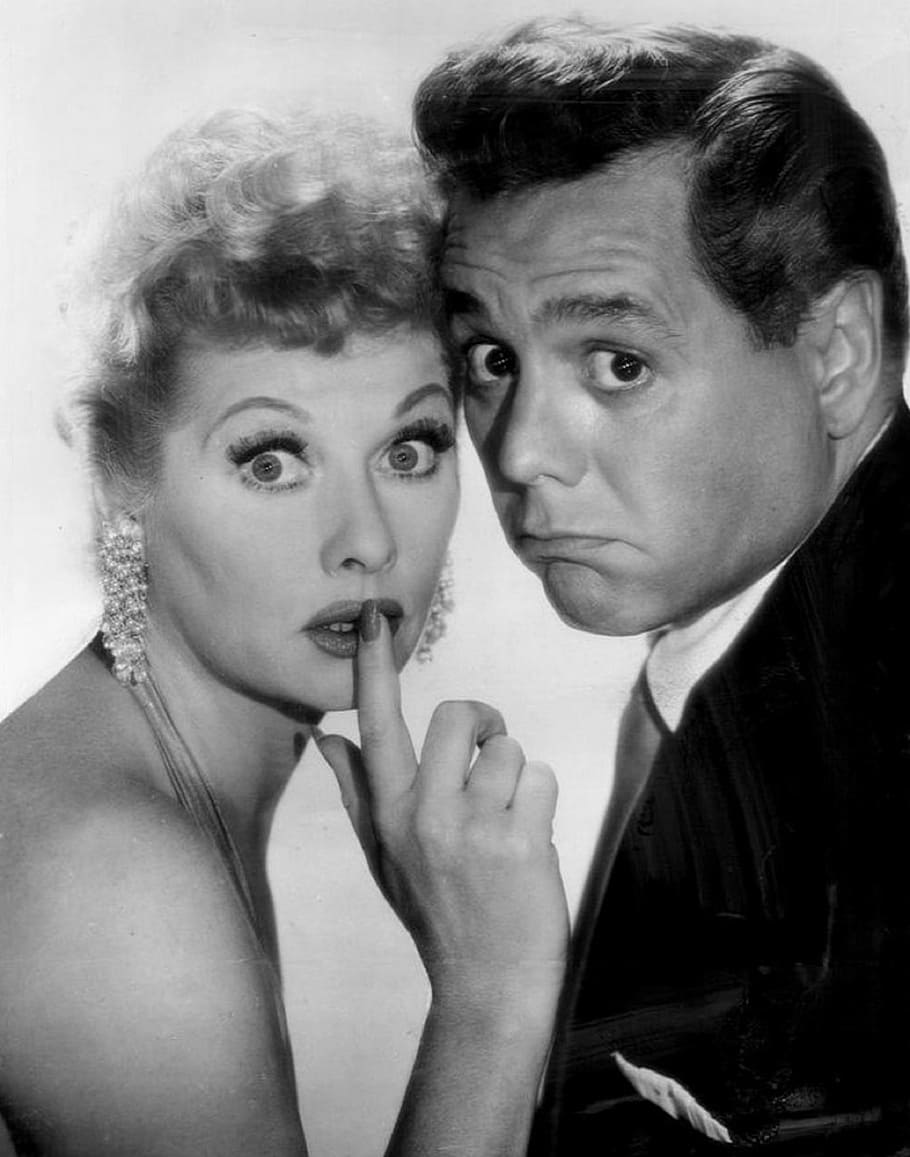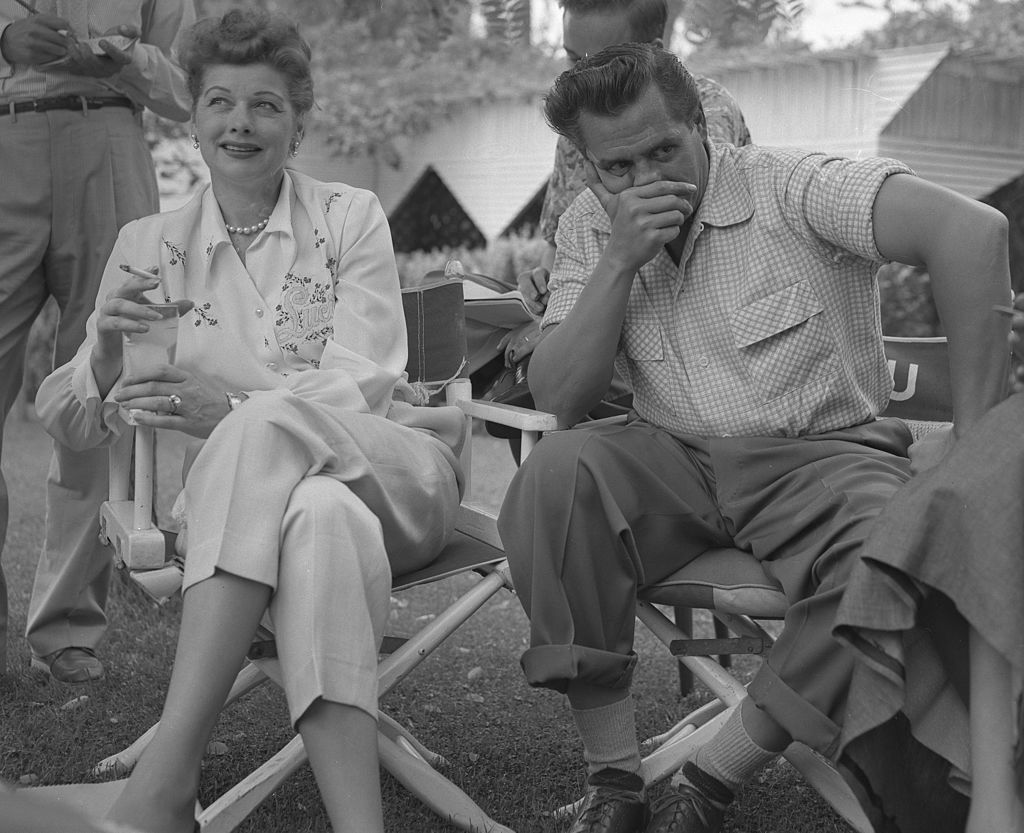
The iconic TV show I Love Lucy remains a cornerstone of American television history, thanks to the dynamic performances of its lead stars, Lucille Ball and Desi Arnaz. Their portrayal of a zany couple living in New York City made the series a beloved classic, even decades after it went off the air. To many, their on-screen chemistry seemed to mirror an ideal love story, with their characters navigating the ups and downs of life and love in a comedic and heartwarming way. However, their real-life relationship told a different, more complicated story—a tale of passion, pain, and personal struggles that would ultimately lead to their divorce after two decades of marriage.
I Love Lucy first aired in the early 1950s, quickly becoming a cultural phenomenon. It was a sitcom that revolutionized television, showcasing the day-to-day misadventures of Lucy Ricardo, played by Lucille Ball, and her Cuban-American husband Ricky Ricardo, portrayed by Desi Arnaz. Over the course of its six-year run, I Love Lucy garnered record-breaking viewership and earned numerous accolades, including 20 Emmy nominations. Even long after the show ended in 1957, Lucille Ball’s comedic brilliance continued to captivate new generations of fans.

Behind the laughter and charm of the show, however, was a complicated partnership between two individuals who were very much in love but also deeply troubled. Lucille and Desi’s off-screen relationship was filled with challenges, particularly due to Desi’s battles with alcoholism and infidelity. Their marriage was anything but perfect, despite what the public might have believed.
Desi Arnaz, born in Cuba in 1917, was not just a talented actor but a visionary. He played a key role in shaping the modern television industry, most notably by developing the three-camera setup, which is still used in sitcoms today. He was also one of the first to recognize the potential of reruns and syndication, paving the way for television as we know it. While many admired his professional accomplishments, his personal life was far more troubled. Desi’s struggles with alcohol and his womanizing ways cast a shadow over his relationship with Lucille, who was not unaware of his behavior.
Lucille and Desi’s relationship began in 1940, when they met while filming the movie Too Many Girls. At the time, both were involved with other people, but their immediate connection was undeniable. It didn’t take long for them to end their respective relationships and pursue their love for each other. They married later that year, in November 1940, despite both publicly stating that they would never marry. They were soon inseparable, but the dynamic between them was often turbulent.

Their marriage, which lasted 20 years, was marked by intense emotional highs and lows. While they were deeply in love, their relationship was also strained by jealousy, possessiveness, and fierce tempers. For Lucille, the greatest strain came from Desi’s persistent struggles with drinking and gambling. When Desi drank, he often became unpredictable and would cheat on his wife. Lucille was fully aware of his infidelities, but the public scandal that arose when the magazine Confidential published a report about Desi’s extramarital affairs was a turning point for her. The magazine had a significant readership and was known for exposing the secrets of Hollywood’s elite, and its article about Desi’s womanizing habits forced Lucille to confront the full extent of her husband’s behavior.
Despite the humiliation, Lucille’s response to the scandal was relatively calm. When she read about Desi’s affairs, she reportedly shrugged off the accusation, saying, “Oh, hell, I could tell them worse than that.” This response spoke volumes about the emotional toll that the situation had on her, but also her inability to completely sever ties with Desi, even in the face of betrayal.
The public revelations about Desi’s infidelity were just one of many challenges the couple faced. In 1944, Lucille even filed for divorce in an attempt to teach Desi a lesson, although the divorce was never finalized. The couple reconciled soon after, and Lucille withdrew the divorce petition. However, their struggles continued, and by the time the 1960s rolled around, their marriage was in ruins.

Their separation and eventual divorce were finalized in 1960, after years of tumult and personal strain. Lucille cited Desi’s “extreme cruelty” and the immense “mental suffering” she endured during their marriage. It was a painful end to what had once been a partnership filled with love and promise.
In the years following their divorce, both Lucille and Desi remarried, though neither found lasting happiness in their second marriages. Lucille wed Gary Morton, a man who was less affected by alcohol, while Desi married Edith Hirsch, who, in some ways, resembled Lucille. Despite their new lives, Desi continued to struggle with alcohol. It wasn’t until much later, after his second wife’s death, that Desi sought help for his addiction. His son, Desi Jr., played a pivotal role in encouraging him to attend Alcoholics Anonymous meetings, and it was during this time that Desi publicly admitted his alcoholism, a moment of personal triumph that deeply moved his family.

Sadly, Desi’s struggle with alcoholism did not end in time to save him. Shortly after admitting his addiction and beginning his journey toward sobriety, Desi was diagnosed with lung cancer. He passed away on December 2, 1986, just days after having a deeply emotional conversation with Lucille, his ex-wife. The two had remained close friends in the years following their divorce, and it was Lucille who was with him in his final moments. Their bond, though once shattered by infidelity and heartbreak, had evolved into a deep friendship that transcended the years of pain.

Lucille and Desi’s story is one of immense talent, profound love, and painful personal struggles. While their marriage was filled with challenges, their shared legacy in the world of television and entertainment remains untarnished. Despite the difficulties they faced, they both contributed significantly to the shaping of modern television, with Desi’s innovations and Lucille’s comedic genius leaving an indelible mark on the industry.
In the end, Desi Arnaz is remembered not only for his professional accomplishments but also for his humanity and the courage it took to confront his demons. His legacy as one of television’s great pioneers endures, as does the remarkable love story between him and Lucille Ball—a love that, though complicated, never truly ended.